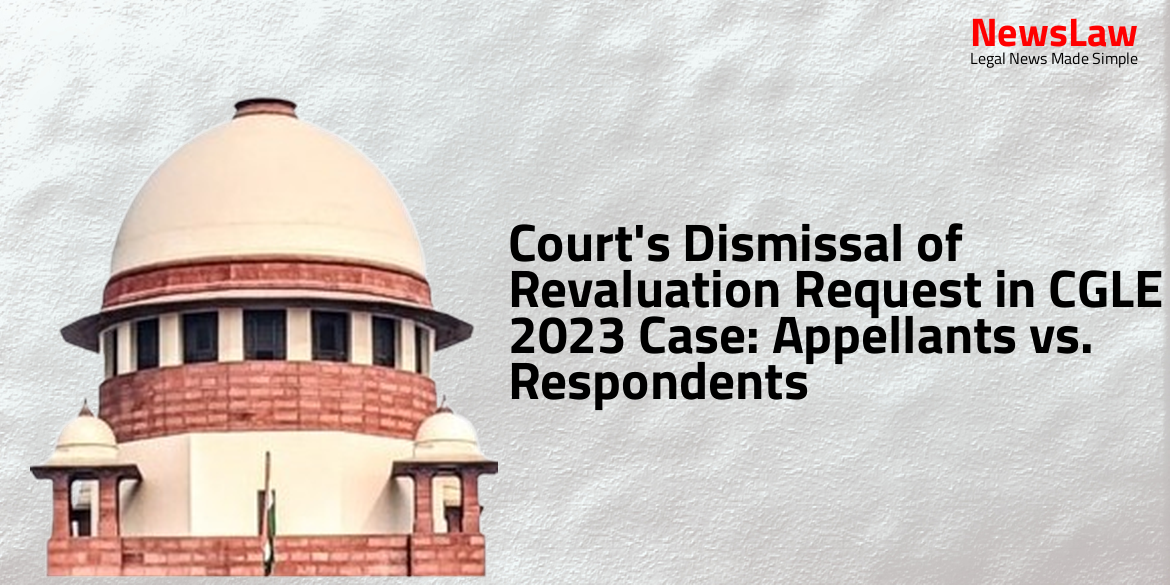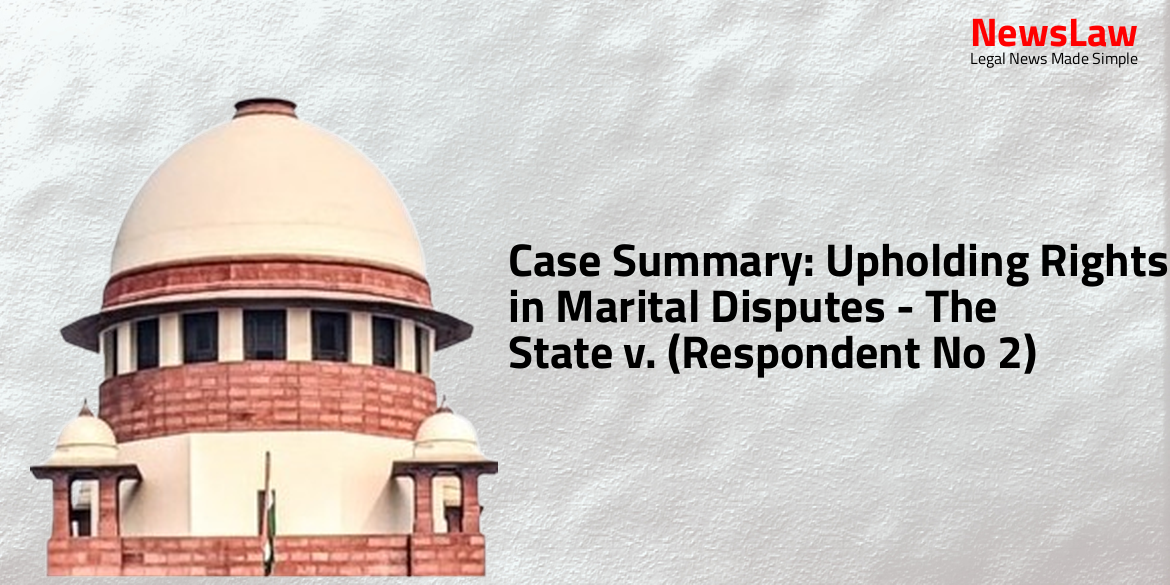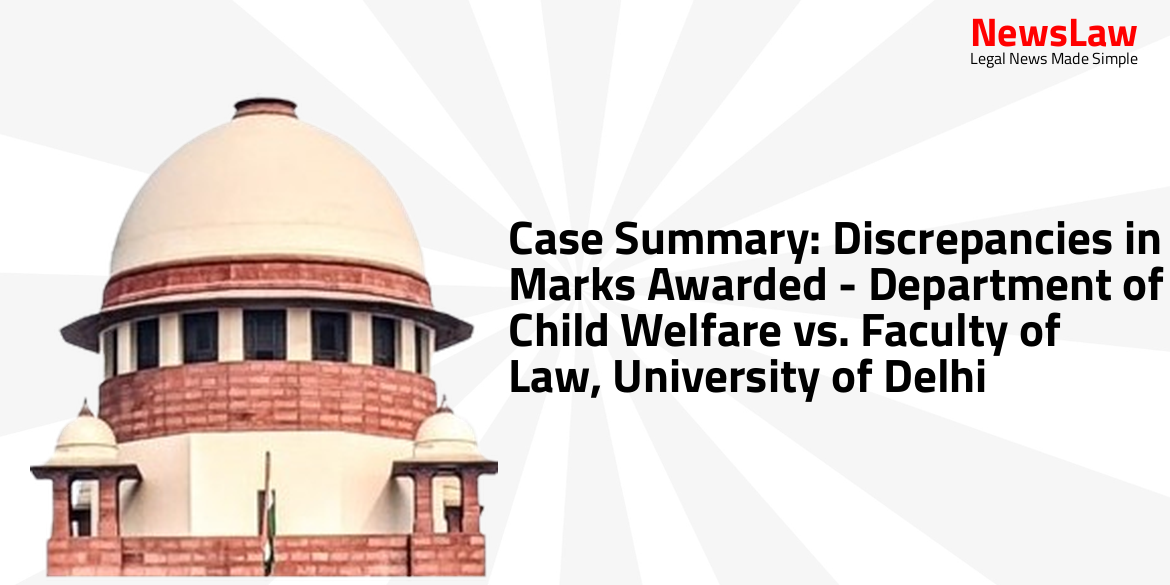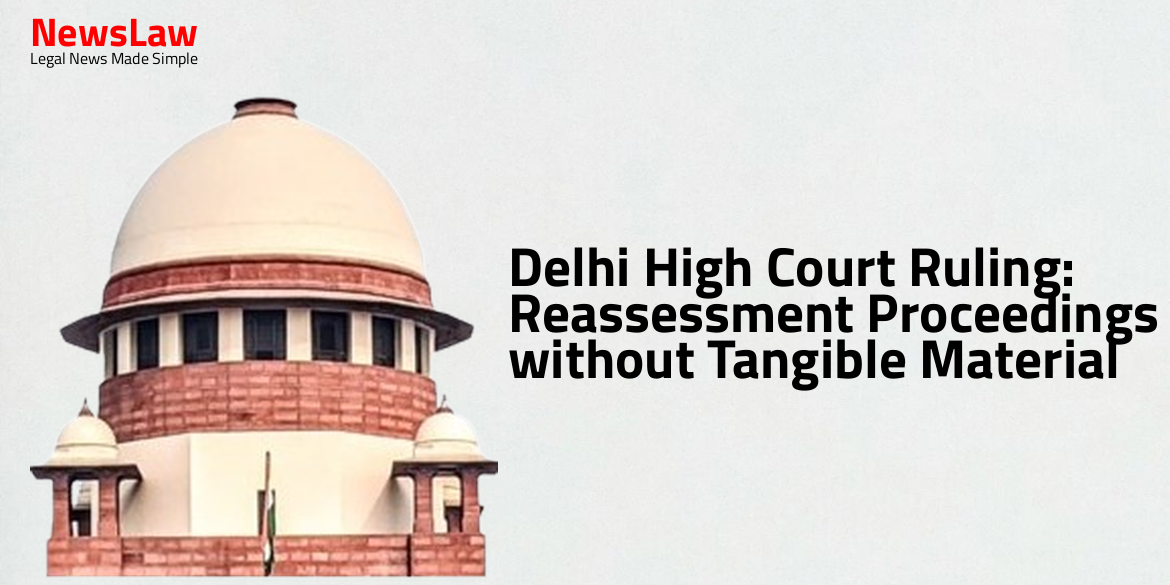In a recent judgment, the Delhi High Court addressed the revaluation request in the CGLE 2023 case involving the appellants and respondents. The Court highlighted the need for extreme caution in interfering with competitive examination processes, emphasizing the importance of clear evidence in challenging evaluation decisions. Stay updated on this crucial legal ruling by the Delhi High Court.
Issue
- The primary issue before the Court is its competence to consider examination-related issues in the present proceedings.
- Appellants are seeking revaluation of answers in the CGLE 2023 which differs from the respondents’ assessments.
- The key question is whether such claims fall under the scope of Article 226 of The Constitution of India.
Arguments
- Petitioner argues that Court should allow revaluation only if clear error is demonstrated without inferential reasoning
- Petitioner contends that they should not have interfered with answers to 5 questions
- Petitioner submits that there is no provision for seeking revisions in the advertisement for CGLE 2023
- Petitioner relies on Ran Vijay Singh case where answer key should be presumed right unless proven wrong
- Petitioner argues that if answer key lacks definitive resolution, court can award marks for divergent yet plausible answers
- The appellant (writ petitioner) and learned counsel for the respondents presented arguments at considerable length.
- The learned counsel for the appellants countered various submissions by relying on legal precedents such as H.P. Public Service Commission vs Mukesh Thakur & Anr, Ran Vijay Singh & Ors, and Pramod Kumar Srivastava vs Chairman, Bihar Public Service Commission, Patna & Ors.
Analysis
- The appellants failed to demonstrate any rare or shocking circumstances warranting interference with the evaluation process of the competitive examination.
- The Court emphasizes the need for extreme caution when interfering with matters concerning competitive examinations, especially without clear evidence of gross errors or violations of established principles.
- Re-evaluation of answer-books is not a right as per the rules and should not be entertained without exceptional grounds.
- Judicial review should refrain from challenging the expertise and decisions of the evaluation committees unless clear errors are evident.
- The Court cannot substitute its judgment for that of the experts appointed to evaluate the examination answers.
- Interference with competitive examination processes may result in undue delays in announcing results and filling vacancies.
- The Court should not direct re-evaluation unless there is substantial evidence of irregularities or violations of natural justice.
- In the case of Maharashtra State Board of Secondary and Higher Secondary Education v. Paritosh Bhupeshkumar Sheth, the Court rejected the contention that in the absence of a provision for revaluation, a direction to this effect can be issued by the Court.
- The Court further held that challenges to policies incorporated in the Rules/Regulations not providing for rechecking/verification/revaluation cannot be entertained unless there are grounds to show that the policy itself violates a statutory provision.
- The Court emphasized that it is within the legislature’s authority to determine the policy for implementing statutes and that the Court cannot question the wisdom of such policies unless they violate statutory provisions.
- The Court highlighted that the judiciary should not interfere in matters like evaluation of answer keys, as it is best handled by experts in the field.
- Recent Supreme Court cases, such as Mahesh Kumar vs Staff Selection Commission & Anr, have reiterated the principle that in the absence of a specific provision allowing re-evaluation, examinees cannot demand re-evaluation of their answer-books.
- The Court thoroughly reviewed the questions and answers despite not being necessary
- The appellants failed to demonstrate how the answers provided were arbitrary, irrelevant, or inappropriate
- No provision for revaluation in the advertisement for CGLE 2023 limits the Court’s interference with the adjudicating authority
- The Court found no infirmity with the answer key provided by the respondents
- The learned Single Judge’s finding was upheld in the present appeal
Decision
- The present appeal is dismissed
- No orders as to cost
Case Title: SHUBHAM PAL & ORS. Vs. STAFF SELECTION COMMISSION & ANR. (2024:DHC:4421-DB)
Case Number: LPA-202/2024



